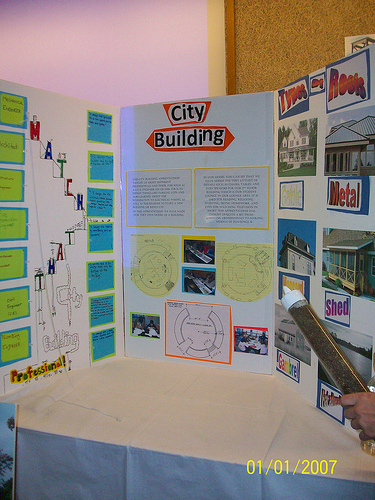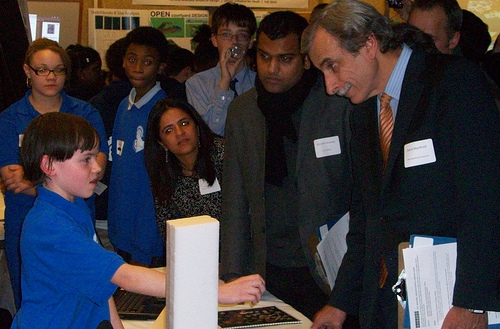How Volunteering Can Change the Lives of Students in Chicago
Ryan Forst is a student at DePaul University with a Masters in Public Administration and currently pursuing a Certificate in Community Development. He learned about the Citizen Schools program through DePaul’s Chaddick Institute and loved the idea of educating students in Chicago public schools about urban planning.
Watching the community where you grew up evolve with time is an opportunity that is truly precious and I am proud to say that I have been part of a positive change. When one of my high school teachers introduced me to the world of urban planning through community development, I knew I had found my calling. I didn’t know that in the future, I too would be be sharing my passion for urban planning with active, young minds. When I heard about the nonprofit organization Citizen Schools, which is dedicated to providing real-world experiences and connections to middle school students in low-income areas, I immediately signed up to be volunteer “Citizen Teacher” with hopes to inspire kids in Chicago to pursue urban planning too.
Some neighborhoods in Chicago aren’t safe for students after school and sometimes they have to walk home across gang lines in the dark. The opportunity to work with students in my own city, and expose them to new ideas they might not otherwise get to experience in a safe environment was immediately attractive to me.
My colleagues and I called the “apprenticeship” class “Build Your Pilsen,” focusing on restructuring two vacant sites in the Pilsen neighborhood of southwest Chicago. We wanted the students to work on a project that could impact their own community. The goal was that by the end of the 10- week course, the students would be able to bring their dream to life in two models, which they would present to their families and school teachers at the end-of-semester event which is called a WOW!
Throughout the ten weeks, we struggled with the question of whether or not the students were actually understanding and retaining the concepts. Holding a middle schooler’s attention requires a lot of advance preparation and sometimes we doubted if we were actually making an impact. But in the end, our doubts were gone as soon as they began their presentation.
On the day of the WOW! I was bowled over by the students’ knowledge of the subject matter. They answered the guests’ challenging questions using the concepts and terminology that we discussed in class. They became urban planning experts before my eyes.
 Eventually, a parent of one of our students walked in. His son enthusiastically started explaining the idea behind his model and answered all of his questions. I was taken aback by this student’s presentation as he was not usually attentive in class. The father then came up to each person in our six member team and thanked us personally for keeping his son engaged. He told us that though his son may have seemed like he didn’t pay attention, he would actually talk nonstop at home about the apprenticeship and everything he learned. He thanked us for truly inspiring his son.
Eventually, a parent of one of our students walked in. His son enthusiastically started explaining the idea behind his model and answered all of his questions. I was taken aback by this student’s presentation as he was not usually attentive in class. The father then came up to each person in our six member team and thanked us personally for keeping his son engaged. He told us that though his son may have seemed like he didn’t pay attention, he would actually talk nonstop at home about the apprenticeship and everything he learned. He thanked us for truly inspiring his son.
It meant so much to me that I felt on top of the world for the rest of the WOW! It made the time we put into lesson plans, commuting, etc. totally worth it. To receive such an acknowledgement from a parent made us realize the difference we were making by connecting these children’s education to possible career paths in the future.
I hope that in the future, the students understand the importance of their role in their community and realize that as residents they have a say in how they can better their society and environment. I hope they advocate for and become actively involved with their current and future community, be it by volunteering or even running for political office. These kids have incredible potential and I am thankful for the chance to work with them.
To inspire young people in your community, sign up to teach an apprenticeship and be part of the change.
